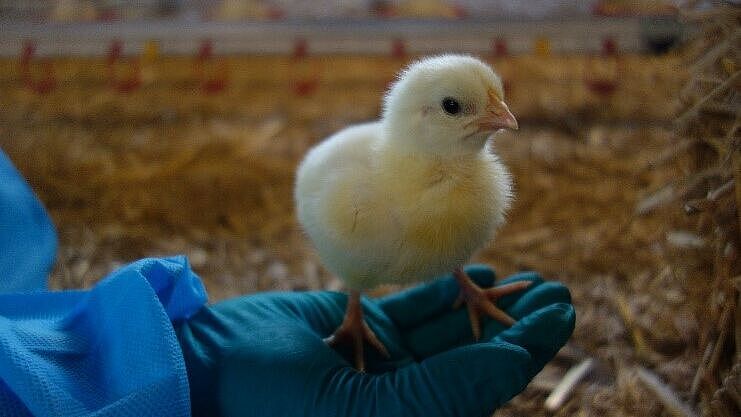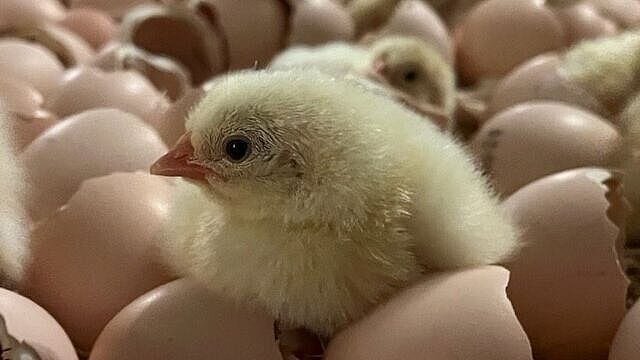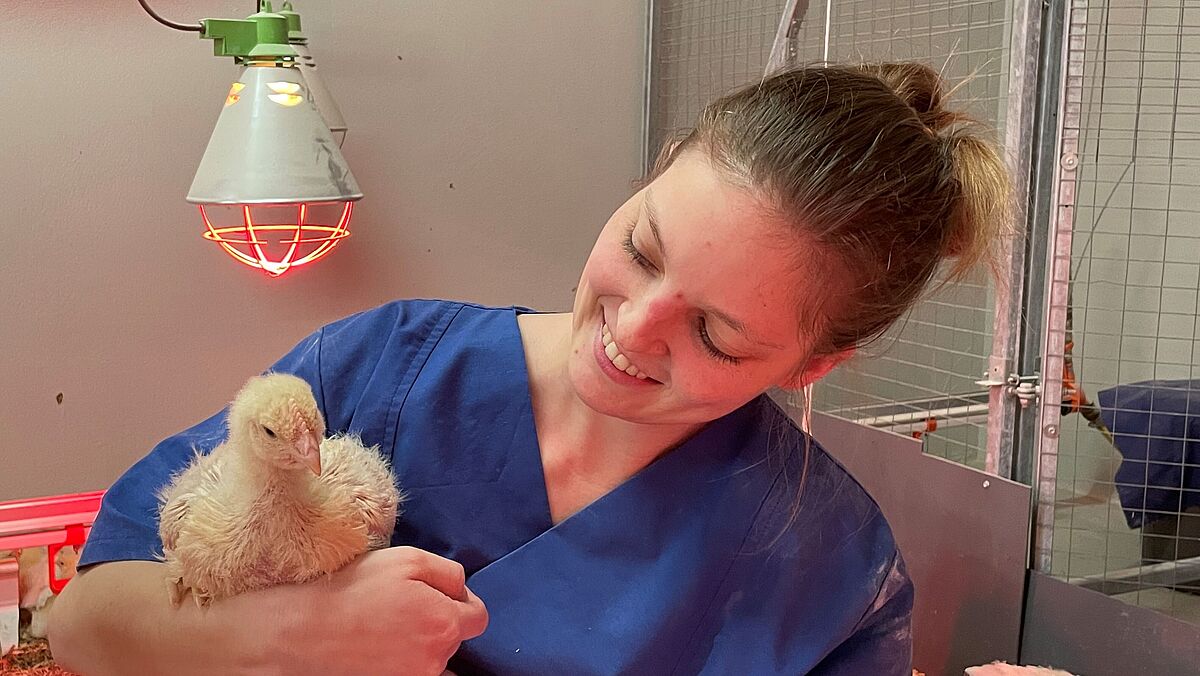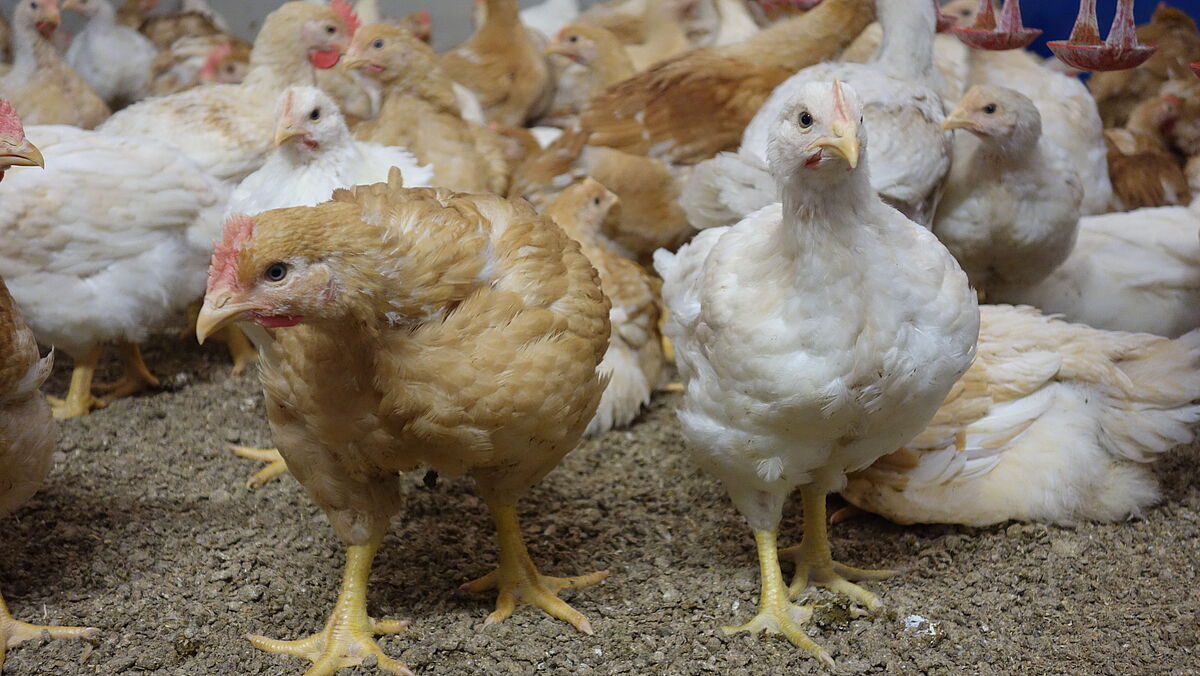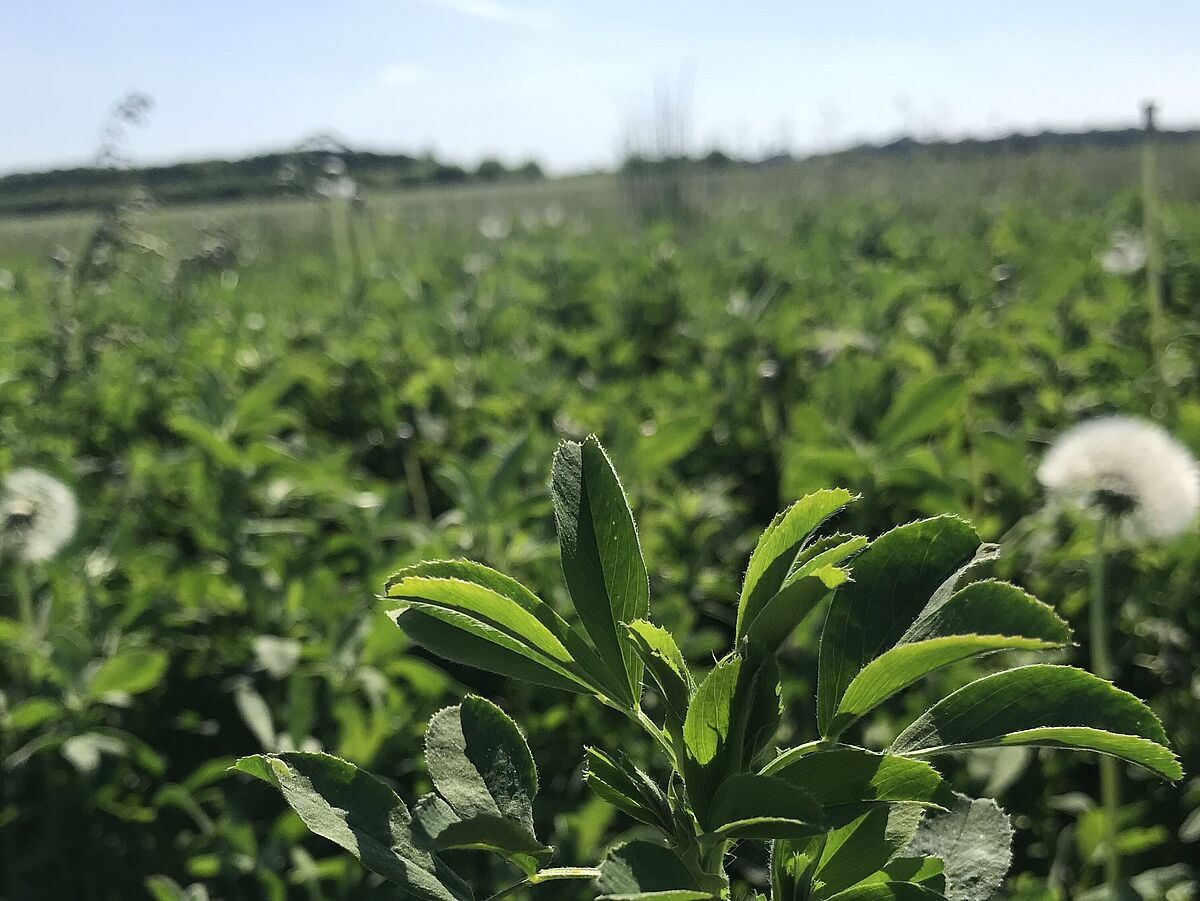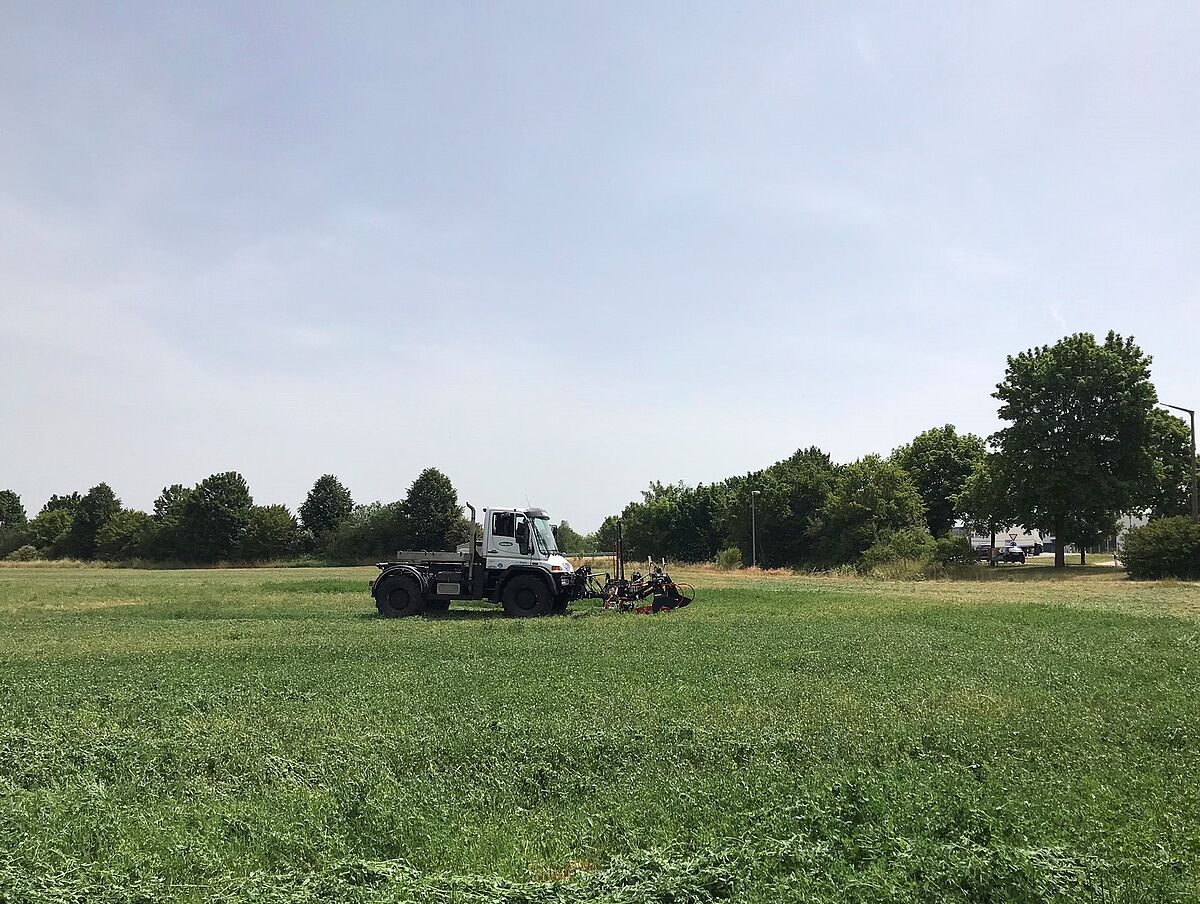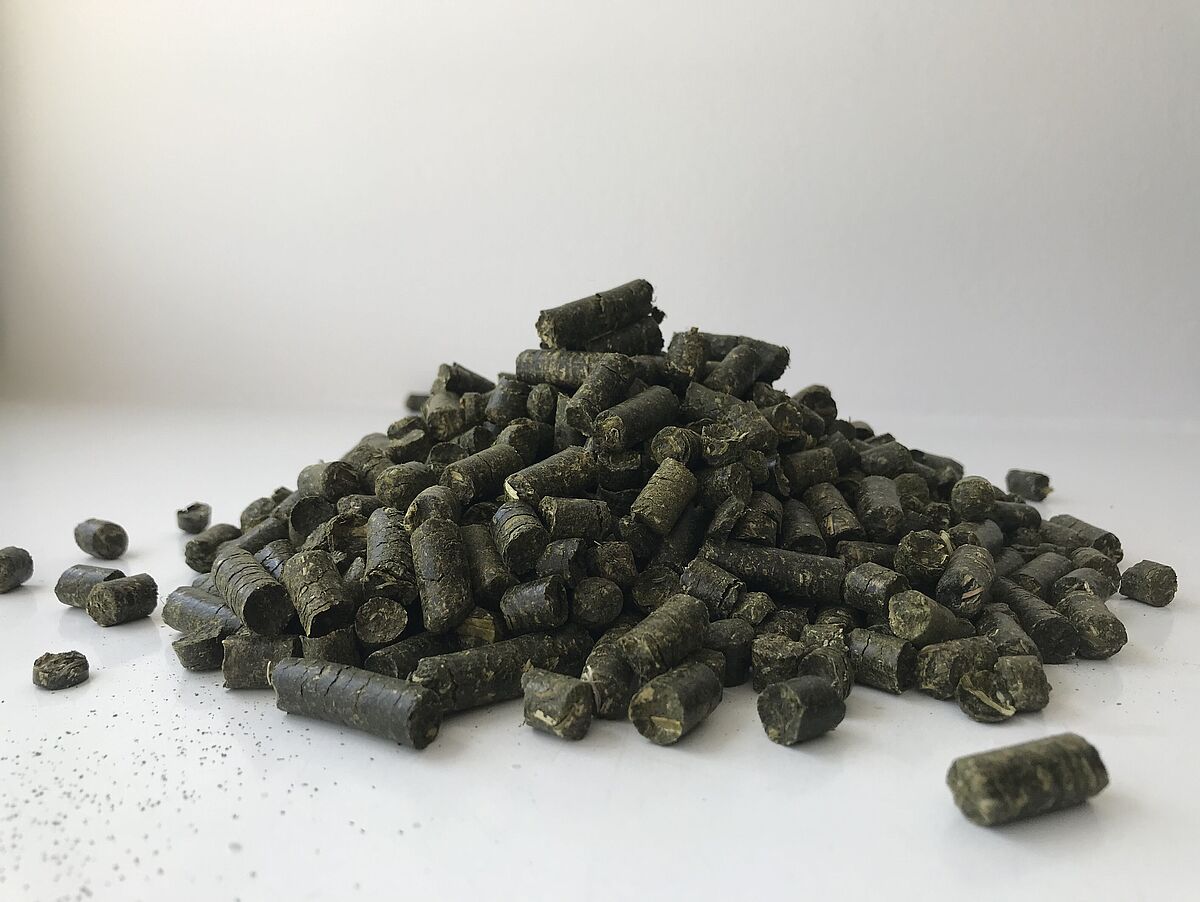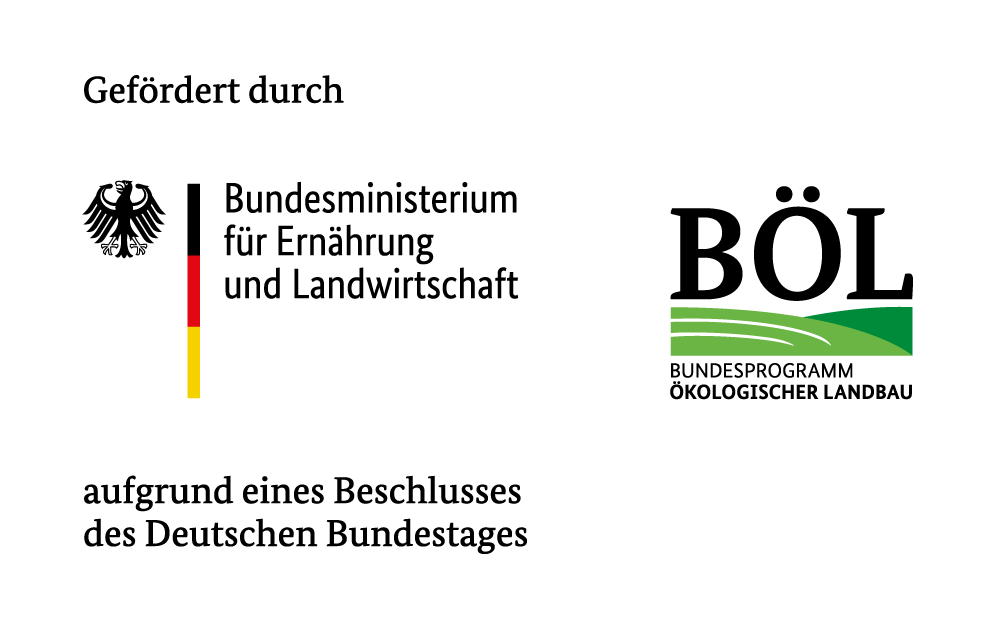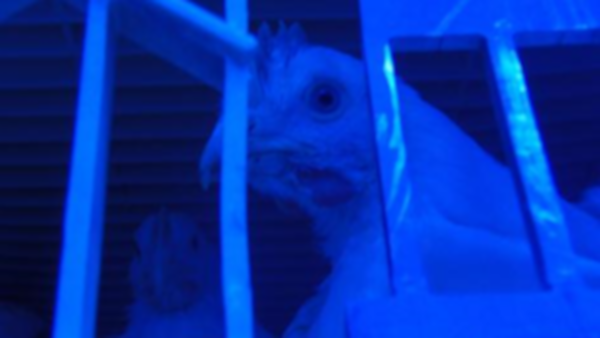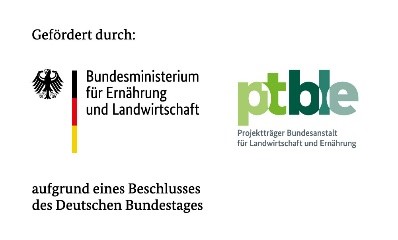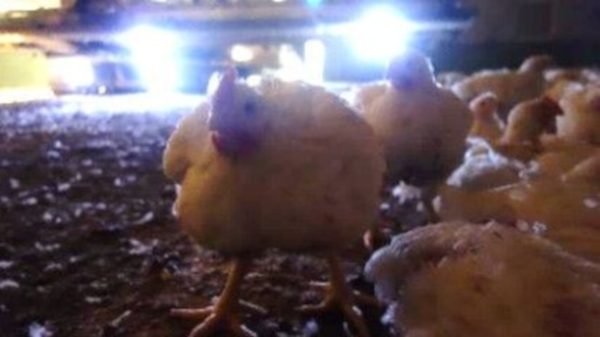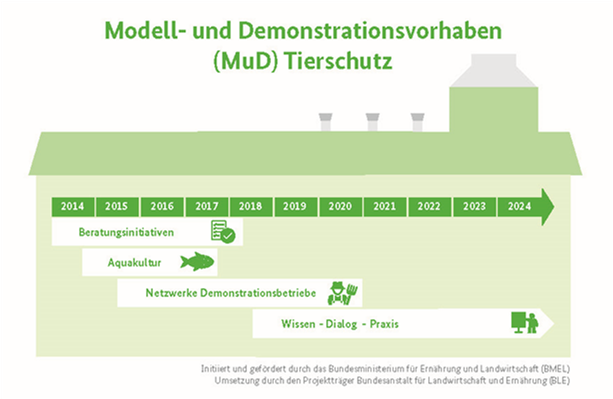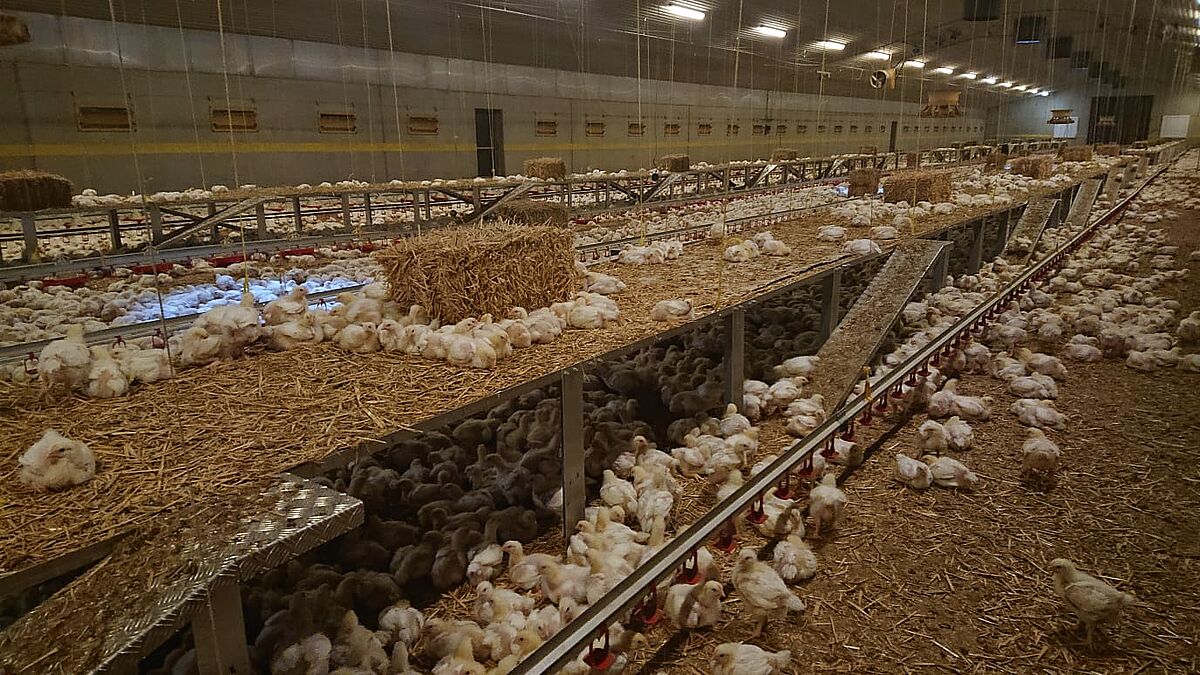In organic poultry nutrition, the supply of essential amino acids to meet the requirements of the animals represents a central challenge. In particular, the supply of sulphur-containing amino acids, especially methionine, is difficult to implement. Within the framework of the "Grünlegum" project, a high potential for the use of Alfalfa products as protein feed in the feeding of non-ruminants was demonstrated. Performance reductions were observed in broilers and laying hens, which could be attributed to the antinutritional saponins contained in the Alfalfa plant. On the other hand, it has already been shown that the antinutritional saponins contained in Alfalfa can reduce nitrogen (N) emissions (ammonia, NH3) in livestock farming.
The project aims to systematically investigate the extent to which Alfalfa plant tops and leaves are suitable for organic poultry feeding and whether there are differences in acceptance among selected genotypes, especially for dual-purpose chickens and conventional laying hybrids. Furthermore, the focus is on N emissions and animal welfare when feeding lucerne products. In this way, the goal of 100 % organic feeding on the basis of domestic protein feeds could be achieved and, in addition, N emissions reduced. Building on the results, a broad establishment of the topic in the practice of organic farming should be achieved and, where possible, a transfer to conventional farming should also take place.
Funded by the Federal Ministry of Food and Agriculture on the basis of a resolution of the German Bundestag within the framework of the Federal Organic Farming Programme.
The project was carried out from 01.07.2023 to 31.10.2024 in cooperation with the Bavarian State Institute for Agriculture (LfL) and the Weihenstephan-Triesdorf University of Applied Sciences. After the leaving of Professor Louton, the project will be completed at the LMU Munich.
contact:
- Prof. Dr. Helen Louton (now: LMU Munich)
- Prof. Dr. habil. Gerhard Bellof (Hochschule Weihenstephan-Triesdorf)
- M.Sc. (TUM) Dipl. Ing. (FH) Stefan Thurner (Bayerische Landesanstalt für Landwirtschaft )
CasStunn
Implementation of a controlled atmosphere stunning as an alternative of an electrical bath stun for broilers – Subproject A
The goal of this project is the implementation of a "Controlled Atmosphere Stunning" (CAS) system as an innovative alternative to electrical bath stunning in the water bath of broiler chickens. Within the framework of the project, factors relevant to animal welfare and the carcass quality of the animals as well as the working conditions of the slaughterhouse staff will be investigated and assessed before and after the installation of a CAS stunning system. The study will consider the adjustment of the CO2 with respect to the season, broiler breed/genetics, sex and weight class of the animals. In sub-project A, the scientific preparation and monitoring of the investigations will be carried out with the evaluation of the data, publication of the results and transfer of the knowledge from the project, among other things, with the implementation of a final workshop/"Open Day at the Slaughterhouse".
contact:
- Prof. Dr. Helen Louton (now: LMU Munich)
- PD Dr. Elke Rauch (LMU Munich)
- Prof. Dr. Michael Erhard (LMU Munich)
The aim of the project is to improve animal welfare and animal health of the loaded broilers and also to optimize the working conditions of the staff on farms.
In Germany, the CMC Apollo Generation 2 catching machine in particular is used for the mechanical loading of the broilers. This is a catching machine in which the animals are loaded into transport containers by using several conveyor belts. Advantages of loading with this machine compared to manual loading were shown in a pioneering study, especially from an economic and labour point of view, but also with regard to the stress level of the animals.
Four individual goals are to be achieved within the framework of the project:
- prevention of broilers striking/bumping into the container by the comparison of different container systems
- the establishment of a suitable velocity of conveyor belts to minimize haematomas,
- the evaluation of the influence of different broiler genotypes and
- evaluation of the influence of the time of the year.
By an optimization of the mechanical harvester considering previously identified critical areas before the start of the examination/project, the risk of injuries shall be reduced. This includes the reflexive wing flapping of the animals and the resulting haematoma on the wing as well as the occurrence of fractures and injuries during the transition from the last conveyor belt into the containers. Since the speed of the conveyor belts of the catching machine can have an influence on the injury rate, an optimal conveyor belt speed is to be investigated within the framework of the project on the basis of the subdivision into the groups "slow" and "fast". The literature also describes other factors that can influence the occurrence of bruising, such as race and ambient temperature, therefore these factors will also be considered in the current project.
The aim of the project is to transfer existing scientific findings on practical farms. In scientific studies, among other things, four key points were developed as elementary for the improvement of animal welfare in broiler farms. These include: (1) the use of environmental enrichment, (2) the use of elevated platforms, (3) the reduction of skin scratches and (4) the improvement of the climatic circumstances. Elevated platforms and enrichmont material (pecking stones) allow the animals to express their natural behaviour. The use of elevated platforms is one aspect which is implemented in practical farms within the framework of the project. Additionally, the amount of necessary enrichment material used is determined. The number and intensity of scratches can be reduced by the reduction of the stocking density and the resultant indirect increase in the usable trough length per animal. The climatic conditions in the barn can be improved and monitored by a ventilation controlled by ammonia and carbon dioxide gas sensors.
The practical suitability of these key points of broiler management is to be investigated and established in the project. Furthermore, the project will attempt to improve the human-animal relationship by so-called "gentling". The main goal here is to accustom the animals to humans, this could ease the handling and reduce scratching due to restless and nervous behaviour.
The project described is a MuD animal welfare project in the project phase Knowledge-Dialogue-Practice. This project is financially supported by the Federal Ministry of Food and Agriculture based on a decision of the Parliament of the Federal Republic of Germany, granted by the Federal Office for Agriculture and Food (FKZ: 2817MDT302).

